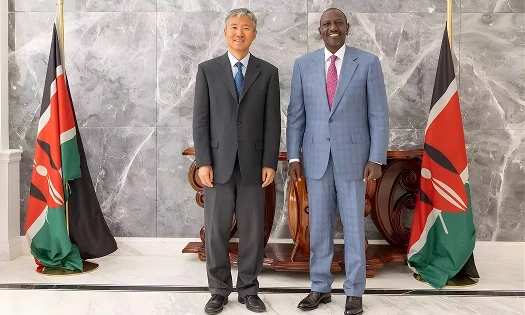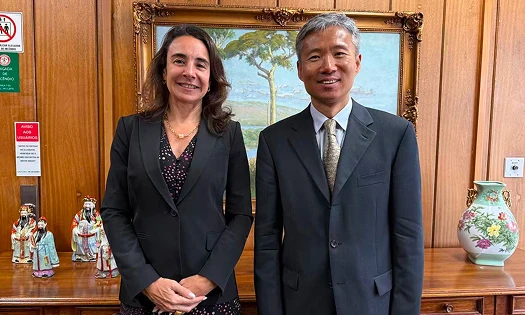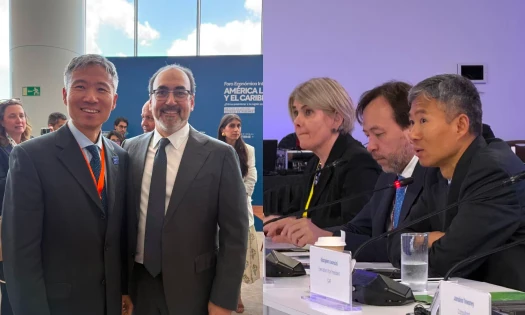With over 80 percent of global trade carried by sea, we need to ensure the cargo ships traversing the planet - and the coastal infrastructure supporting them - are more sustainable and climate resilient.
With this in mind, the Multilateral Cooperation Center for Development Finance (MCDF) will hold a workshop to explore how seaport hubs linking global supply chains can put climate action at the center of their development plans.
The virtual gathering on 18 – 19 July is part of a series of Climate Smart Connectivity Infrastructure workshops jointly hosted by MCDF with the Egyptian Ministry of Finance, the Asian Infrastructure Investment Bank (AIIB), the Islamic Development Bank (IsDB) and the Vulnerable Twenty (V20) Group.
The workshops have been devised around MCDF’s core mandate. MCDF was set up in 2020 as a multilateral initiative specifically designed to promote high-quality infrastructure and connectivity investments in developing countries.
The second in the climate connectivity workshop series, which runs up until COP27 in Egypt, is designed to ensure maritime-based development does not exacerbate the climate crisis. The workshop will bring together development finance specialists, coastal infrastructure project managers, private sector actors and a variety of other maritime development practitioners.
The purpose of “green ports” is not only to reduce greenhouse gas emissions. Given the critical role of ports in the global trading system and their potential exposure to climate-related damage, disruptions and delays, enhancing their climate resilience is a matter of strategic socio-economic importance for the global economy and society as a whole.
The first day of the MCDF workshop will cover green ports – including a focus on the trends and technologies shaping maritime transport, to both reduce its carbon footprint and make it more climate resilient. The second day will focus on transforming the ancillary infrastructure linked to ports to become more climate smart - including through renewable power, the use of nature-based solutions to enhance climate resilience, green special economic zones, and climate-smart port cities.
Following the two-day workshop, project proponents and developers will meet potential financers, with the aim of converting climate smart ideas into real projects on the ground. The purpose of this “deep dive session” is to advance investments for climate-smart coastal connectivity initiatives that can be showcased at COP27 in Egypt in November.
The MCDF workshop is timely. Attempts are gathering pace to ensure development covering oceans and coasts is sustainable as part of a new “Blue Economy” approach.
The UN Ocean Conference, which concluded at the beginning of this month, highlighted the urgent need to reduce environmental damage accompanying current sea-based development. The global gathering, including 24 heads of state and government, released a declaration calling for innovative financing to reduce climate risks and emissions from maritime transport.
Keep an eye on the MCDF website to learn how ideas generated during the July workshop can shape the Blue Ocean infrastructure of tomorrow, while also helping to drive climate action momentum before COP27. MCDF will co-host two more workshops in September and October as part of its Climate Smart Connectivity Infrastructure series focusing respectively on transport and energy.







